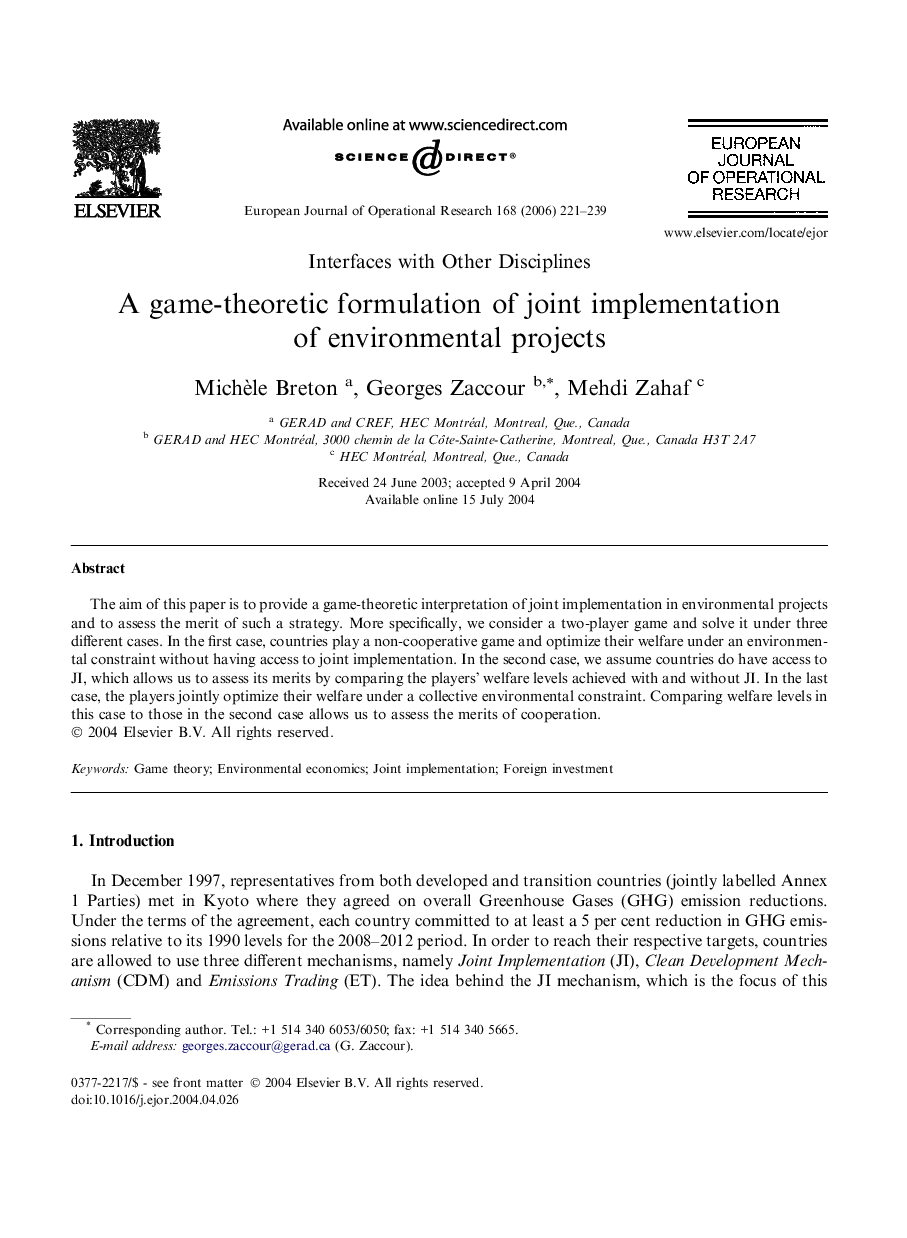| Article ID | Journal | Published Year | Pages | File Type |
|---|---|---|---|---|
| 482845 | European Journal of Operational Research | 2006 | 19 Pages |
The aim of this paper is to provide a game-theoretic interpretation of joint implementation in environmental projects and to assess the merit of such a strategy. More specifically, we consider a two-player game and solve it under three different cases. In the first case, countries play a non-cooperative game and optimize their welfare under an environmental constraint without having access to joint implementation. In the second case, we assume countries do have access to JI, which allows us to assess its merits by comparing the players’ welfare levels achieved with and without JI. In the last case, the players jointly optimize their welfare under a collective environmental constraint. Comparing welfare levels in this case to those in the second case allows us to assess the merits of cooperation.
